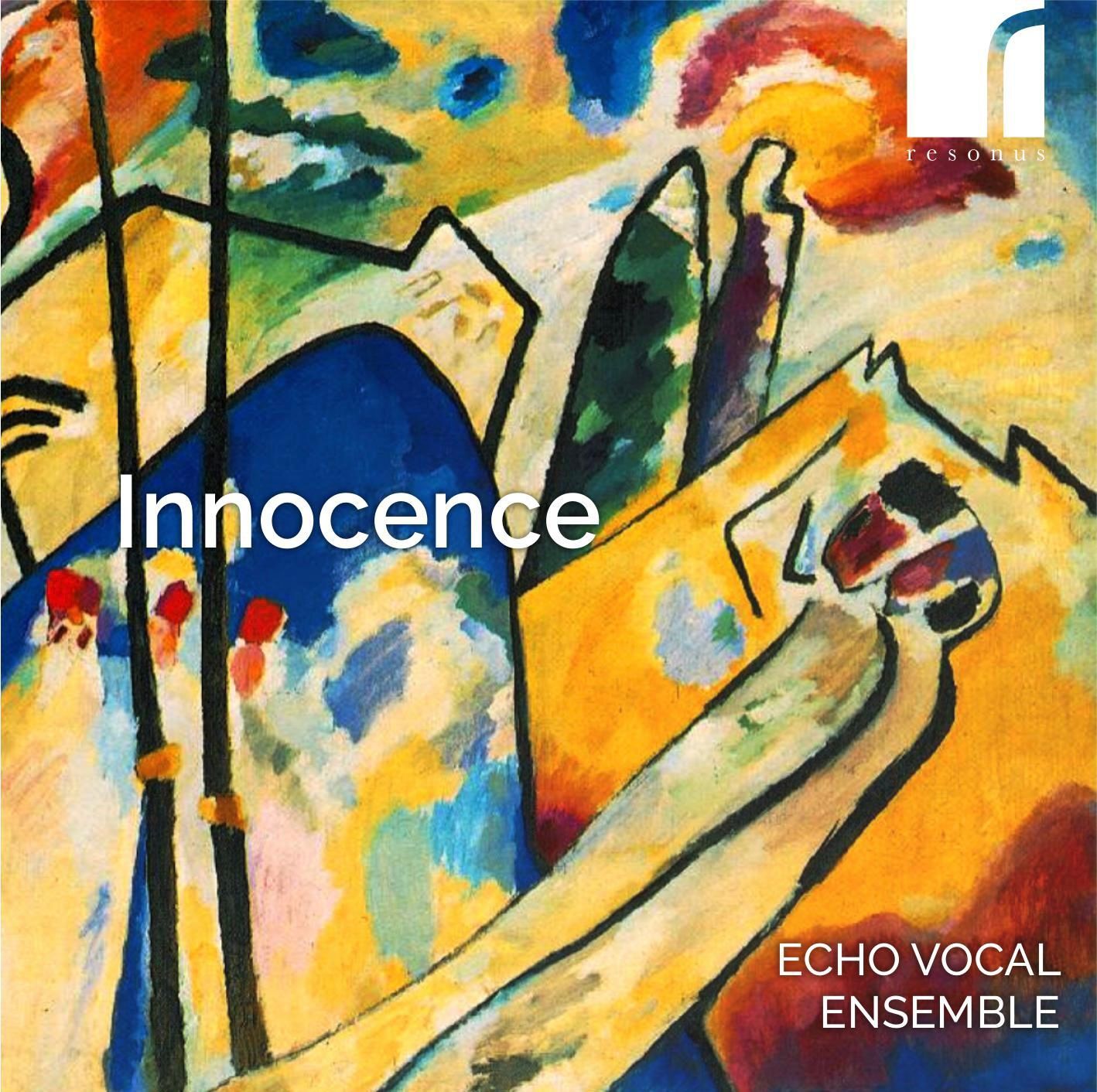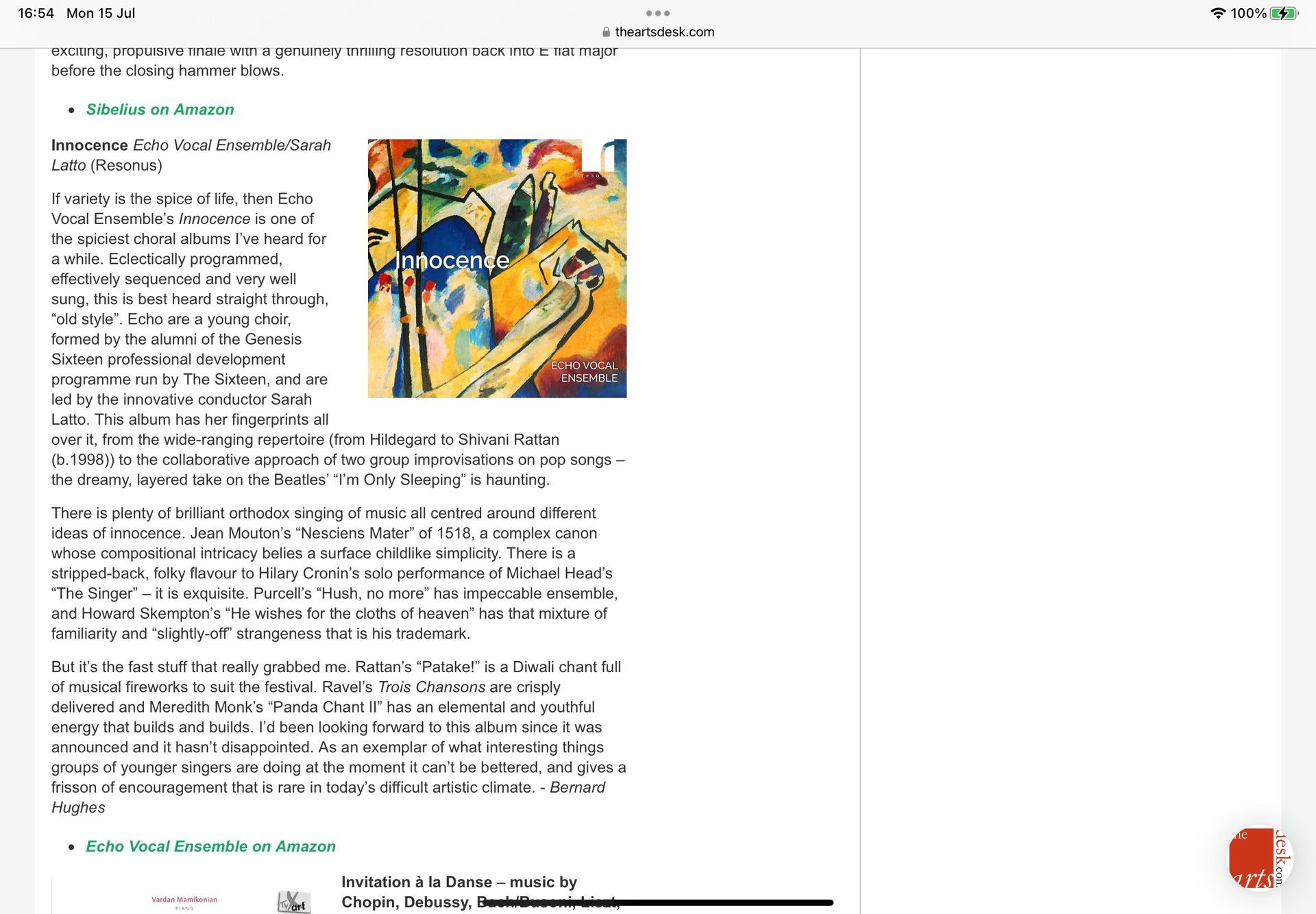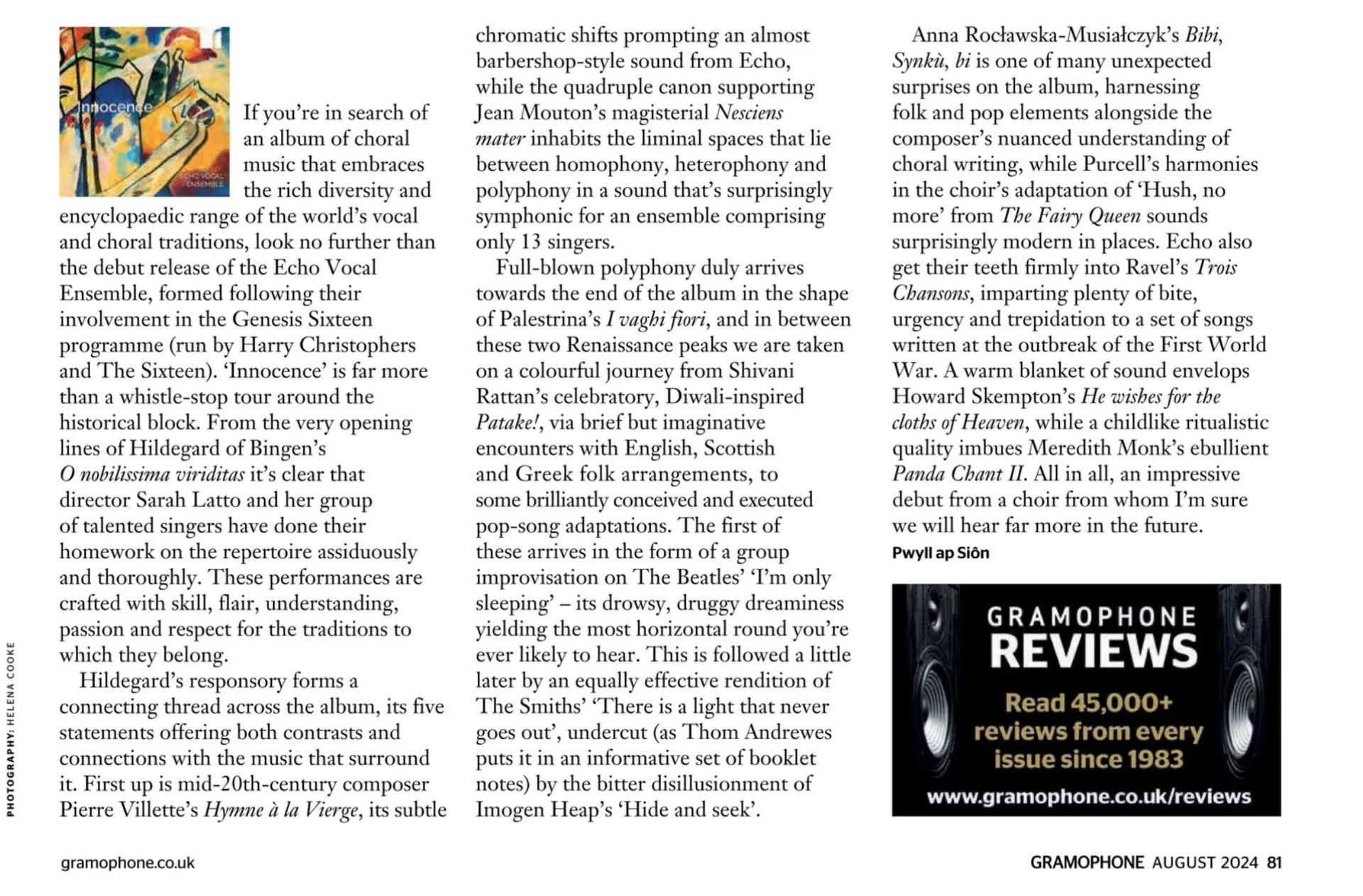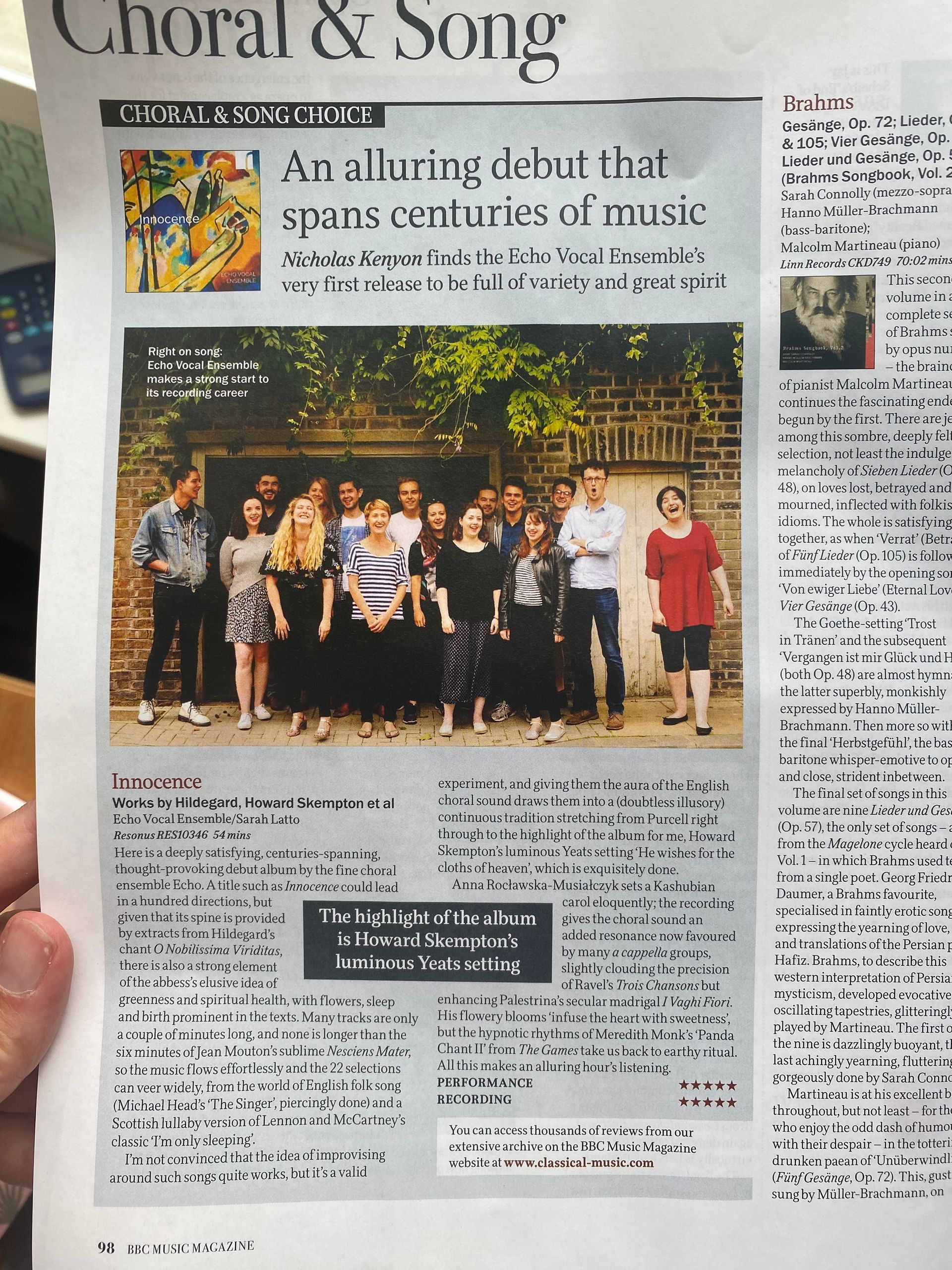
Echo’s debut recording explores the concept of innocence and its many connections to our changing ideas of faith, tradition, childhood and the natural world.
Order album
Purchase a copy of Echo’s debut album,
Innocence, at £15 plus postage

Tracklist
Hildegard of Bingen (1098-1179) - O Nobilissima Viriditas
Pierre Villette (1926-1988) - Hymne à la Vierge, op.24
Jean Mouton (c.1459-1522) - Nesciens Mater
Shivani Rattan (b.1996) - Patake!
Michael Head (1900-1976) - The Singer
Meredith Monk (b.1942) - Panda Chant II
Maurice Ravel (1875-1937) - Trois Chansons M69
Anna Rocławska-Musiałczyk (b. 1987) - Bibi, Synkù, bi
Henry Purcell (1659-1695) - Hush, no more (adapted from The Fairy Queen Z 629)
Lennon/ McCartney - I’m only sleeping (improvisation) - from Revolver (1966)
Howard Skempton (b. 1947) - He wishes for the cloths of heaven
Morrissey & Marr / Heap, arr. Sarah Latto - There is a light that never goes out / Hide and Seek
Giovanni Pierluigi da Palestrina (1525-1594) - I Vaghi Fiori
ANOHNI (b.1971) - Why did you separate me from the earth (improvisation)
About the concept
Innocence is one of those many-sided concepts that has different meanings and resonances in different places and at different times. It is a concept that is transformed by history — through the shifts in our collective relationships to faith, to tradition and to the natural world — but it is also a concept that contains a notion of history within it: a before and an after. We only know what innocence is after we have lost it. As an ensemble, Echo have a deep investment in exploring the whole breadth of musical history: in listening out for those transhistorical resonances, half-hidden ancestries and curious echoes of the present in the music of the past. The theme of innocence, which is so closely tied to the experience and representation of time — yearnings for the past, warnings for the future — seemed an ideal topic for such an exploration.
Moving freely between musical traditions sacred and secular, composed and improvised, classical and popular, this recording begins with innocence as a religious virtue, reconfigured by industrialisation and World War into a pastoral longing for a lost world of enchantment and connection to nature, as recorded in folk tales and children’s songs. In a sequence of lullabies, we sense the precariousness of these childhood idylls, fragile as dreams, which dissolve in the cold light of day. Yet where innocence is lost, wisdom is gained. The album closes with a consideration of how visions of the past can shape our orientation toward the future.
Critical Reception
The Arts Desk - July 24

Gramophone - Aug 24

BBC Music Magazine - Sep 24

